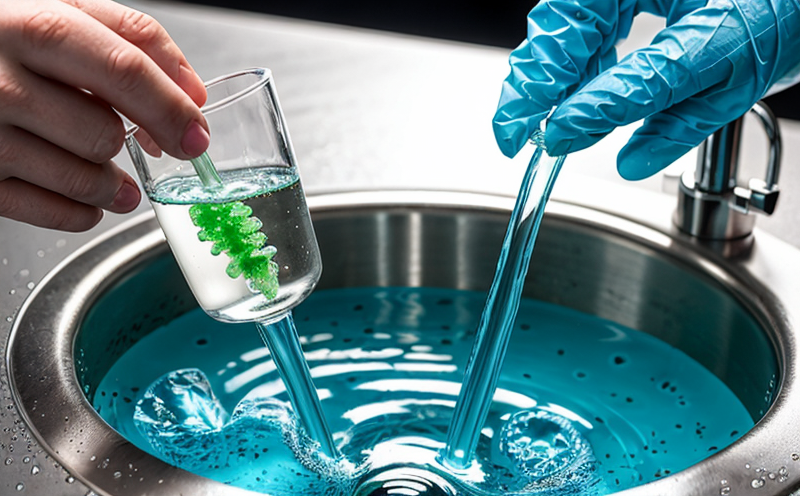ISO 10705-2 Somatic Coliphages Test in Water
The ISO 10705-2 standard specifies a method for determining the presence of somatic coliphages in water samples. Somatic coliphages are viruses that infect faecal bacteria and are often used as indicators of contamination from human or animal waste.
This test is critical for assessing the quality and safety of drinking water, recreational waters, and other potable water sources. By detecting these coliphages, laboratories can provide valuable insights into potential public health risks associated with waterborne pathogens.
The procedure involves several steps including sample collection, preparation, inoculation, incubation, and analysis using a suitable detection method such as plaque formation on an appropriate host cell or by quantitative PCR (qPCR).
Accurate identification of somatic coliphages is essential for monitoring compliance with regulatory standards set by organizations like the World Health Organization (WHO), European Union Drinking Water Directive, and others. Compliance officers rely on this test to ensure their facilities meet stringent quality requirements.
R&D engineers use these results to develop new treatments or processes aimed at reducing pathogen levels in water supplies. Procurement teams may also reference these findings when selecting suppliers for raw materials used in water treatment plants.
Understanding the significance of this test helps stakeholders appreciate its role in safeguarding public health and maintaining environmental standards.
Why It Matters
The safety of our drinking water is paramount to public health. Contamination by somatic coliphages can indicate the presence of harmful pathogens, which could pose serious risks if not detected early enough. The ISO 10705-2 test plays a vital role in identifying these potential hazards.
Drinking contaminated water can lead to various illnesses ranging from mild gastrointestinal issues to more severe conditions requiring hospitalization. Therefore, regular testing ensures that any problematic sources are addressed promptly before they cause widespread harm.
In addition to protecting human health, compliance with regulatory guidelines helps maintain trust among consumers regarding the quality of their tap water. This trust is crucial for building long-term relationships between service providers and end users.
For industries reliant on clean water supplies, such as beverage manufacturers or agricultural operations, consistent adherence to these testing protocols guarantees product safety and minimizes legal liabilities related to health concerns.
The ISO 10705-2 standard provides a reliable framework for conducting this essential analysis. Its implementation ensures accurate results that contribute significantly towards maintaining high standards of hygiene across all sectors involved with water management.
Industry Applications
- Drinking Water Treatment Facilities: Monitoring compliance with regulatory requirements.
- Recreational Waters: Ensuring safety for swimmers and other recreational users.
- Beverage Manufacturing Plants: Guaranteeing product quality by preventing contamination during production processes.
- Agricultural Operations: Protecting crops from pathogens carried through irrigation systems.
- Environmental Monitoring Agencies: Assessing overall ecosystem health and identifying hotspots for intervention.
Customer Impact and Satisfaction
Regular testing of water sources using the ISO 10705-2 standard helps ensure that drinking water is safe to consume. This reduces instances of illness among consumers, thereby enhancing overall satisfaction with service providers.
For businesses dependent on clean water supplies, consistent compliance demonstrates commitment to maintaining product quality and reliability. Such actions build stronger relationships between companies and their customers while fostering loyalty.
Environmental monitoring agencies benefit from accurate data provided by this test, enabling them to take proactive measures against pollution incidents before they escalate into larger problems affecting broader communities.
The ISO 10705-2 standard supports all these stakeholders in fulfilling their respective roles effectively, leading to increased customer satisfaction and improved reputation.





